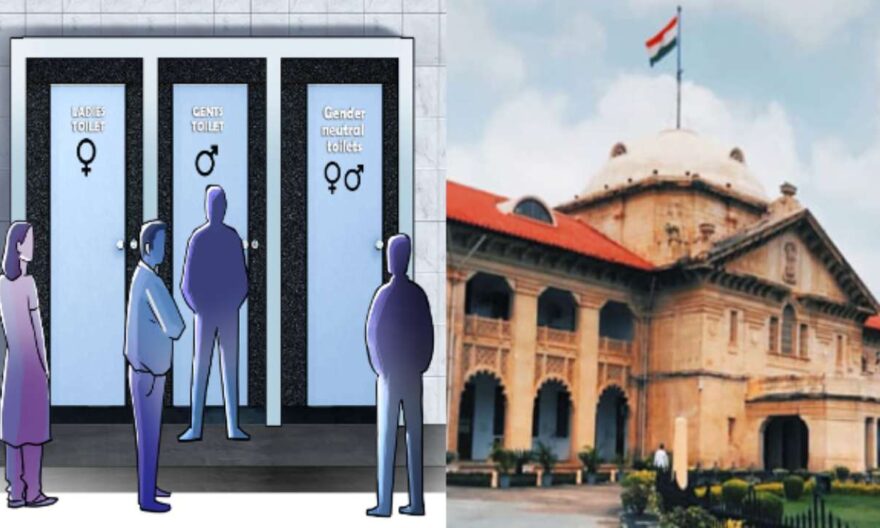
The Allahabad High Court on Wednesday stated that toilets for transgender individuals should not be constructed based solely on their population density, rather, they should be built alongside public toilets for both men and women.
A division bench of Chief Justice Pritinker Diwaker and Justice Ashutosh Srivastava was considering a PIL filed by students from various law colleges. The students claimed to have formed a fact-finding committee to investigate the challenges faced by non-binary individuals residing in Allahabad.
The petitioners visited public places such as the Nagar Nigam Office, bus stands, and railway stations, and found that no restrooms were available for transgender individuals. The fact-finding committee reported that the district of Agra in Uttar Pradesh has the highest number of transgender individuals, with the number decreasing as one moves from west to east across the state.
In response to this, the bench orally observed that the state authorities had not constructed an adequate number of restrooms for the general population, let alone for the non-binary population. The counsel representing the Nagar Nigam informed the court that since the filing of the PIL, five public restrooms for transgender individuals had been constructed throughout the city. It was also mentioned that additional areas had been identified and appropriate measures would be taken soon.
The court emphasized that the construction of toilets for transgender individuals should not be determined solely based on their population density. Instead, toilets should be built in all public places alongside toilets for binary individuals.
The petitioners heavily relied on the judgment in National Legal Services Authority v. Union of India and Others, where the Supreme Court held that the central and state governments should take necessary measures to provide separate public restrooms for transgender individuals. The petitioners argued that access to proper sanitation is a fundamental right that is being denied to the transgender community.
They emphasized that despite the existence of the Transgender Persons (Protection of Rights) Act, 2019, transgender individuals continue to face discrimination in various aspects of life, ranging from access to public places to denial of housing opportunities. The lack of gender-neutral or separate restrooms in public places further exacerbates their problems, the petitioners submitted.
Since the respondents requested five weeks to file a counter in the matter, the court scheduled the next hearing for September 5. The court also directed the state to provide remuneration and travel expenses to the petitioners (students) for the upcoming hearing.




